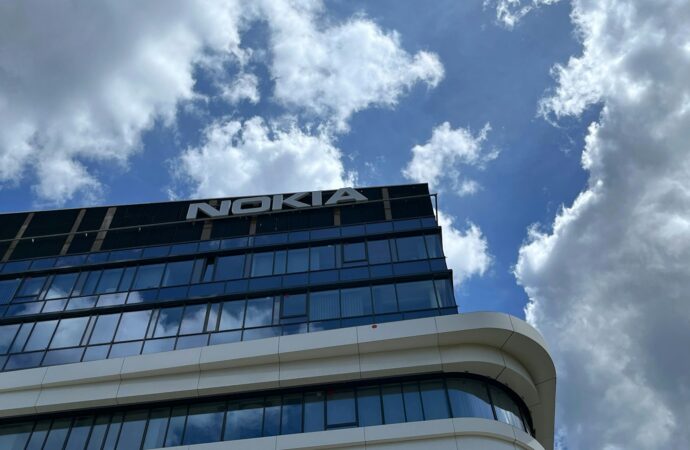In a landmark deal, Nokia has solidified its position as a key player in Egypt’s telecommunication landscape by partnering with Telecom Egypt to launch the country’s first 5G services. This collaboration marks a significant milestone in Egypt’s digital transformation journey and highlights the strategic moves within the telecom industry.
Nokia’s AirScale Portfolio to Power Egypt’s 5G Network
Under the new agreement, Nokia will supply cutting-edge equipment from its AirScale portfolio, including baseband units (BBUs) and massive MIMO radios, all powered by the advanced ReefShark system-on-chip (SoC). This technology will be instrumental in rolling out 5G services across several major Egyptian cities, starting from the historic coastal city of Alexandria and extending through Cairo, Giza, Luxor, and Aswan.
A Pivotal Moment for Telecom Egypt
Telecom Egypt, operating under the brand name “We,” has been actively exploring 5G capabilities with various global technology partners. Notably, it had previously deployed a 5G cloud core from Ericsson and engaged in successful 5G trials with Huawei. However, the partnership with Nokia, which began with a Memorandum of Understanding (MoU) signed in 2019, has culminated in this significant rollout, positioning Nokia at the forefront of Egypt’s 5G launch.
Tommi Uitto, president of mobile networks at Nokia, expressed optimism about the collaboration, stating, “The introduction of 5G services enabled by our extensive portfolio will open exciting new opportunities for people and businesses in Egypt to experience enhanced mobile connectivity. Our collaboration establishes a strong foundation for driving the nation’s digital transformation.”
The Intriguing Landscape of Egypt’s 5G Strategy
Egypt’s approach to 5G deployment has been anything but straightforward. In January, Telecom Egypt secured the country’s first official 5G license for $150 million, a stark contrast to the anticipated auction reserve price of $500 million discussed as recently as October 2023. This unexpected move has stirred the industry, especially considering that all four of Egypt’s major operators—Orange, Vodafone, Etisalat, and Telecom Egypt—already possess spectrum capable of supporting 5G services.
In 2020, the National Telecommunications Regulatory Authority (NTRA) awarded 2.6-GHz TDD spectrum to Etisalat, Vodafone, and Telecom Egypt, generating $1.17 billion. Orange later joined the fray in 2022, acquiring its spectrum for $440 million. Despite this, the operators have yet to refarm these frequencies for 5G use, leaving industry analysts puzzled.
The Road Ahead: Opportunities and Challenges
The launch of 5G services in Egypt, facilitated by Nokia’s technology, promises to unlock numerous opportunities for enhanced mobile connectivity and digital services. It positions Egypt to benefit from advancements in various sectors, including healthcare, education, and smart city initiatives. However, the journey is fraught with challenges, particularly in navigating the regulatory and strategic complexities that have characterized Egypt’s telecom sector.
As Egypt embarks on this new era of connectivity, the collaboration between Nokia and Telecom Egypt will be closely watched by industry stakeholders. Their success could set a precedent for future 5G deployments in the region, driving further innovation and digital transformation.
In conclusion, the Nokia-Telecom Egypt partnership is a beacon of progress in Egypt’s telecommunications market. It reflects the dynamic nature of the industry and the critical role of strategic alliances in shaping the future of connectivity. As 5G becomes a reality in Egypt, the nation stands on the brink of a technological revolution, poised to reap the benefits of faster, more reliable, and more versatile mobile networks.
Source: Telecoms.com










Leave a Comment
Your email address will not be published. Required fields are marked with *